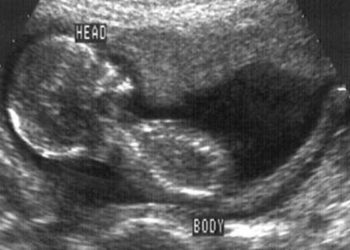Intracytoplasmic sperm injection offers no benefit over in-vitro fertilization for non-severe male factor infertility
1. Live birth rates after first embryo transfer were similar between intracytoplasmic sperm injection and conventional in-vitro fertilization groups.
2. The incidence of neonatal deaths was rare and comparable in both groups.
Evidence Rating Level: 1 (Excellent)
Study Rundown: The use of intracytoplasmic sperm injection (ICSI) has expanded from treating severe male infertility to addressing non-severe cases. However, whether this results in better outcomes over in-vitro fertilization among those with non-severe male factor infertility. This study compares ICSI with conventional in-vitro fertilization (IVF) in couples with non-severe male factor infertility. This randomized controlled trial aimed to assess the safety and efficacy of ICSI versus conventional IVF. The primary outcome of this study was live birth after first embryo transfer, while key secondary outcome was neonatal deaths. According to study results, ICSI showed similar live birth rates compared to conventional IVF in this population. Although this study was well done, it was limited by its focus on Chinese reproductive medicine centers, thus limiting generalizability.
Click to read the study in The Lancet
Relevant Reading: Trends in the Use of Intracytoplasmic Sperm Injection in the United States
In-depth [randomized-controlled trial]: Between Apr 4, 2018, and Nov 15, 2021, 3879 couples were screened for eligibility in 10 reproductive centers across China. Included were patients with infertility and non-severe male factor, without a history of poor fertilization. Altogether, 2387 couples (1154 in ICSI group and 1171 in IVF group) were included in the final analysis. The primary outcome of live birth after first embryo transfer showed no significant difference between ICSI and conventional IVF (33.8% vs. 36.6%, respectively, adjusted risk ratio [RR] 0.92, 95% confidence interval [CI] 0.83-1.03, p=0.16). The secondary outcome of neonatal deaths was low and similar between groups (0.2% in ICSI and 0.1% in IVF). Overall, findings from this study suggest that routine use of ICSI is not recommended over conventional IVF in couples with non-severe male factor infertility.
Image: PD
©2024 2 Minute Medicine, Inc. All rights reserved. No works may be reproduced without expressed written consent from 2 Minute Medicine, Inc. Inquire about licensing here. No article should be construed as medical advice and is not intended as such by the authors or by 2 Minute Medicine, Inc.







